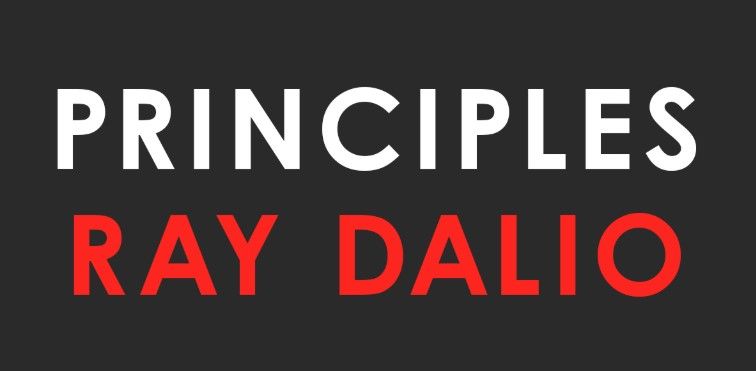
Ray Dalio's Principles: A Guide to Decision-Making and Success
Ray Dalio, founder of Bridgewater Associates and one of the most successful investors in history, shares in "Principles" (2017) the fundamental lessons that have shaped his personal and professional life. The book is a deep dive into decades of experience and learning, distilled into practical and applicable principles.
"Pain plus reflection equals progress."
This central quote from the book encapsulates one of Dalio's main philosophies: our failures and difficulties, when objectively analyzed, are the greatest sources of personal and professional growth.
Principles for Effective Decision-Making
The author structures his work around the idea that clear and well-defined principles are essential for effective decision-making. As he eloquently puts it: "Principles are fundamental truths that serve as the foundation for behavior that gets you what you want out of life."
Meritocracy of Ideas
One of the most impactful concepts presented is the "meritocracy of ideas". Dalio argues that the best ideas should prevail, regardless of who presents them. "In a true meritocracy, you want people to say what they really think and not what they think you want to hear."
Key Takeaways from the Book:
-
Radical Transparency
Dalio advocates for a culture of extreme honesty and transparency. "Truth—or more precisely, a precise understanding of reality—is the essential foundation for any good outcome." This approach, though initially challenging, leads to stronger relationships and better results.
-
Embrace Reality and Deal with It
"Nature is a system that learns from its mistakes." Following this principle, Dalio emphasizes the importance of facing reality as it is, not as we wish it to be. Accepting and learning from mistakes is crucial for growth.
-
5-Step Decision-Making Process:
- Define your goals
- Identify the problems
- Diagnose the root causes of the problems
- Design solutions
- Implement the solutions
-
Systematic Thinking
"Almost everything is a 'machine' that operates by specific principles that produce specific results." This systematic view allows for a more structured and efficient approach to problem-solving.
Adaptability and Self-Awareness
One of the most provocative quotes from the book states: "Evolve or die." Dalio emphasizes that adaptability is not just desirable but essential for survival and success in any field.
The author also addresses the importance of self-awareness: "Understand that you have blind spots and cannot objectively see your own behavior." This awareness leads us to seek feedback and different perspectives.
Practical Implementation
For practical implementation, Dalio suggests:
- Write down your own principles
- Constantly reflect on decisions and outcomes
- Keep a record of lessons learned
- Seek honest feedback from trusted individuals
"Success comes from the alignment of your values, your goals, and your nature."
This quote aptly summarizes the book's central message: the alignment between who you are, what you want, and how you act is fundamental to achieving extraordinary results.
Conclusion
Principles is not just a book about business success; it's a comprehensive guide to decision-making in all areas of life. Dalio's lessons, though developed in the context of investment management, are universally applicable.
As he wisely concludes: "Life is like a game where you seek to discover the rules of the game while playing it." Through his principles, Dalio offers us a valuable map to navigate this game with greater wisdom and effectiveness.
This book is essential for anyone interested in improving their decision-making, developing a more systematic mindset, and building a more successful life through clear and tested principles.
- ray_dalio
- principios
- decision_making
- sucesso
- self_knowledge
- transparency
- meritocracy
- personal_development
- systematic_thinking
- adaptability